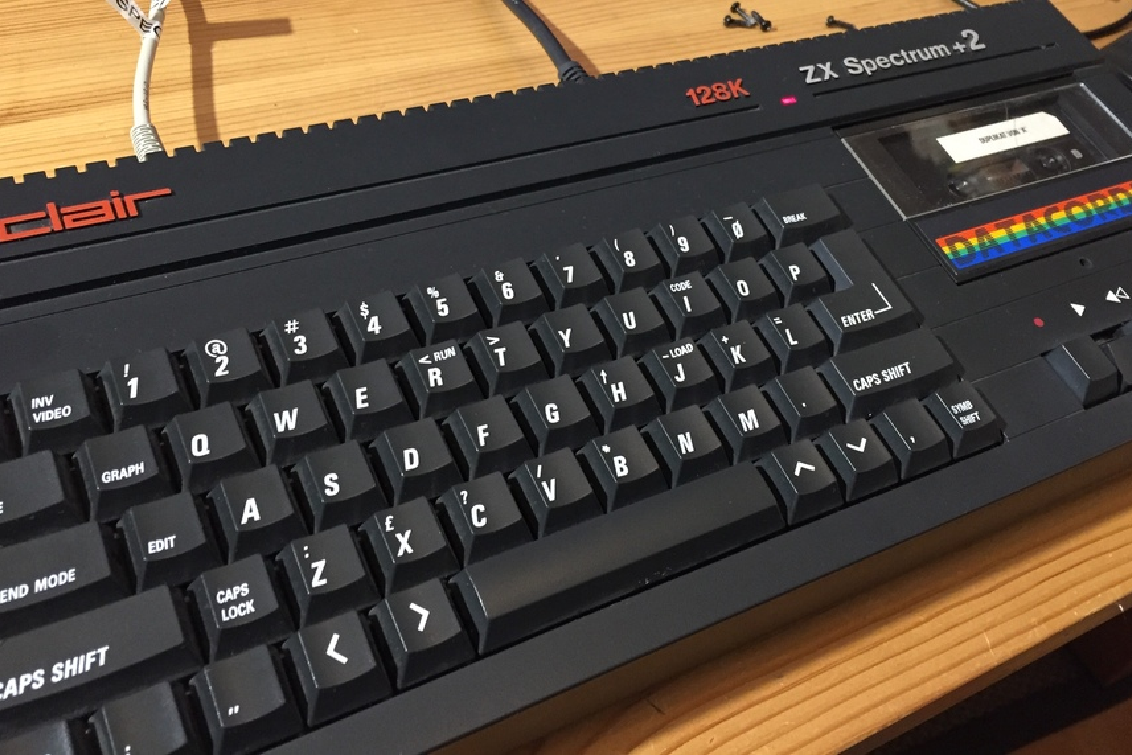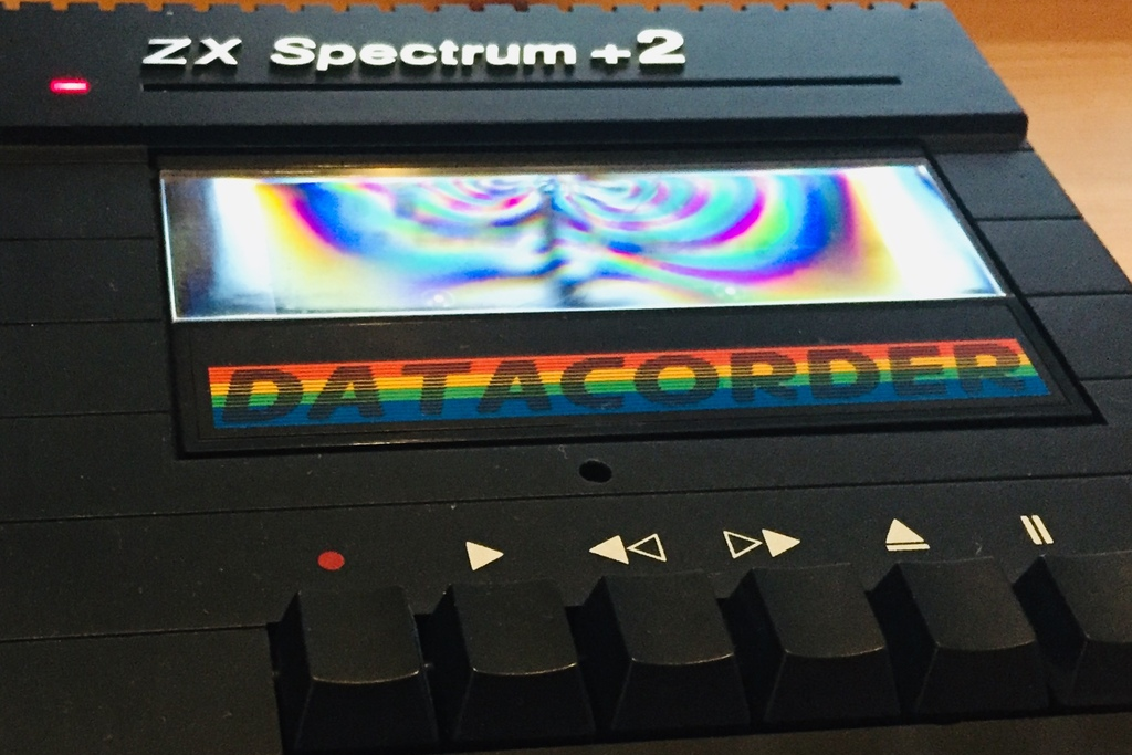ZX Spectrum
ZX Spectrum: A Pioneer in Home Computing
- Country: United Kingdom
- Developer: Sinclair Research
- Release: 1982
The ZX Spectrum, released by Sinclair Research in 1982, stands as a pioneering example of early home computing and interactive entertainment. This 8-bit personal computer not only introduced millions to the world of digital entertainment but also played a crucial role in shaping the nascent video game industry. Known for its affordability, accessibility, and vibrant library of software, the ZX Spectrum remains an iconic piece of technology that continues to evoke nostalgia among enthusiasts and collectors worldwide. At its core, the ZX Spectrum was designed to be accessible to a broad audience, offering a compact form factor and an affordable price point compared to its contemporaries. The sleek, minimalist design, coupled with rubber keys and a distinctive rainbow-striped logo, gave it a unique identity. The Spectrum's success was bolstered by its compatibility with a wide range of software, including interactive experiences, educational programs, and productivity tools. This versatility made it a popular choice for both home users and educational institutions, contributing to its widespread adoption across Europe and beyond.
One of the ZX Spectrum's defining features was its expansive software library, encompassing thousands of titles across various genres. From adventure challenges and platformers to educational software and utilities, the Spectrum offered something for everyone. Its vibrant community of developers and enthusiasts contributed to a rich ecosystem of software development, with many indie creators crafting innovative and memorable experiences. The ZX Spectrum's interactive experiences and applications showcased the creativity and technical prowess of early pioneers in the digital entertainment industry, laying the groundwork for future innovations. The ZX Spectrum's hardware specifications, including its Z80 processor and limited color palette, posed both challenges and opportunities for developers. While its 48K of RAM was considered ample for the time, developers had to optimize code and creatively use the hardware to achieve desired graphical and interactive effects. The Spectrum's distinctive attribute was its ability to display vibrant, colorful graphics within the constraints of its hardware, leading to iconic visual styles that are still celebrated today. Despite its technical limitations, the Spectrum's software library showcased a wide range of creativity and innovation, demonstrating the ingenuity of developers in pushing the boundaries of what was possible.

Manic Miner
Manic Miner, developed by Matthew Smith and released in 1983, is widely regarded as one of the ZX Spectrum's most iconic platformers. Players control Miner Willy as he navigates through a series of increasingly challenging caverns to collect valuable treasures. The game's precise controls, clever level design, and quirky sense of humor made it an instant hit. Manic Miner's success not only demonstrated the Spectrum's capabilities as a console but also established a template for future platforming classics.
Jet Set Willy
Jet Set Willy, the sequel to Manic Miner, continued the adventures of Miner Willy in a sprawling mansion filled with eccentric rooms and puzzles. Developed by Matthew Smith and released in 1984, Jet Set Willy expanded on its predecessor's formula with more complex level design and a larger world to explore. The game's non-linear structure and challenging mechanics challenged players to uncover secrets and navigate hazards while maintaining the Spectrum's reputation for innovative and engaging experiences.
Elite
Elite, developed by David Braben and Ian Bell and released in 1984, pushed the boundaries of what was possible on the ZX Spectrum. This space trading and combat simulator offered players the opportunity to explore a vast, procedurally generated galaxy while engaging in trading, combat, and exploration. Elite's open-ended gameplay, groundbreaking 3D graphics (for its time), and sophisticated mechanics set a new standard for immersive experiences on home computers. Its technical achievement and ambitious scope cemented its status as a landmark title in the history of video games.

The ZX Spectrum's cultural impact extends far beyond its initial release. It inspired a generation of programmers, developers, and enthusiasts, laying the groundwork for the modern digital entertainment industry. The Spectrum's emphasis on accessibility and creativity fostered a community-driven ethos that continues to influence indie developers and retro digital entertainment enthusiasts today. Its legacy is preserved through emulation, preservation efforts, and a passionate community of collectors who continue to celebrate its contributions to interactive entertainment. The ZX Spectrum's enduring popularity is sustained by a passionate community of enthusiasts, collectors, and developers. Online forums, retro digital entertainment expos, and preservation efforts play a crucial role in celebrating and preserving the platform's legacy. Enthusiasts continue to share memories, discuss favorite titles, and collaborate on preservation projects, ensuring that the Spectrum's software library remains accessible to future generations. The community-driven nature of the Spectrum's legacy fosters a sense of camaraderie and shared nostalgia among its fans, reinforcing its status as a beloved icon of the retro digital entertainment scene.
The ZX Spectrum remains a beloved and influential piece of interactive entertainment and computing history. Its innovative design, vibrant software library, and cultural impact have left an indelible mark on the industry. Titles like Manic Miner, Jet Set Willy, and Elite exemplify the Spectrum's ability to captivate users with innovative experiences and technical achievements. As technology evolves, the ZX Spectrum's legacy continues to inspire new generations of enthusiasts and developers, ensuring its place as a seminal chapter in the history of digital entertainment and home computing. The legacy of the ZX Spectrum extends beyond its hardware and software library. Its impact on the digital entertainment industry is evident in the principles of accessibility, creativity, and community engagement that it helped to establish. The Spectrum's emphasis on user-generated content, indie development, and accessible programming tools laid the groundwork for the democratization of interactive entertainment development. Many concepts pioneered on the Spectrum, such as procedurally generated content, open-world exploration, and emergent experiences, continue to influence modern digital entertainment design and development practices. As a cultural and technological milestone, the ZX Spectrum remains a testament to the enduring appeal of early home computing and interactive entertainment innovation.